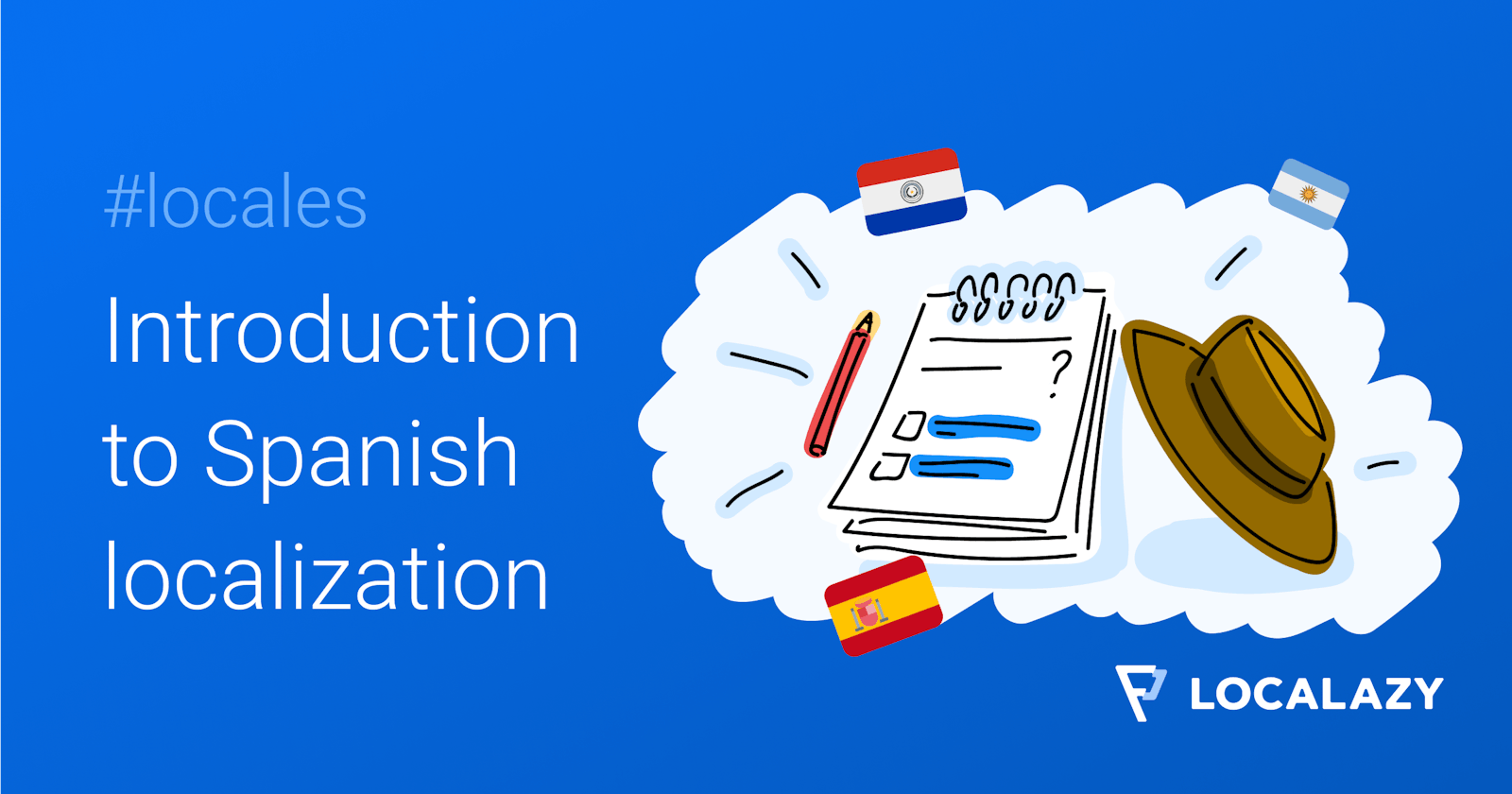Learn why Spanish is an important language to consider and why it might be one of the first to choose when you start with the localization of your product. There’s no wonder Spanish is the most popular language on our platform!
📖 Introduction
Before discussing this topic, we first need to know a little about the history of this language. Spanish is one of the Romance languages that originated from Vulgar Latin, which in turn originated from the living or cultured Latin that was spoken in the Roman Empire.
Origin of Spanish Language
The Romance languages were formed by the end of the 9th century and emerged from the various dialects that differed in pronunciation and writing that gained prominence as the number of people speaking them grew. These dialects included Portuguese, Galician, Castilian, Asturleonese, Aragonese, Catalan, Occitan, French, Rhaeto-Romanic, Italian, Romanian, and Dalmatian.
Who speaks Spanish?
Spanish is the official language of 21 countries, most of them in America and Europe, although it is also present in former Spanish colonies such as the Philippines (Asia), Equatorial Guinea, and Western Sahara (Africa); it is the mother tongue of millions of people and is also spoken by those who study Spanish as a second language; all in all, more than 450 million people speak Spanish.
The Difference between Spanish and Castilian
A notion that many of us have heard but few have wondered about and investigated is the Castilian language. In particular, what is the difference between Spanish and Castilian?
The answer is simple: the term Spanish comes from the word Spain, while Castilian comes from Castile, one of the original kingdoms that originated the country. This was later used to differentiate the Spanish dialect spoken in Latin America from the one used in Europe. But there's no such thing as two dialects in Spanish... There are multiple ones and that's what we're going to talk about next.
The importance of dialects
A dialect is a specific form of a language spoken in a particular part of the country of used by a particular group of people. Nearly every language in the world has dialects, which are generally regional varieties of a standard tongue. They are not to be confused with accents, as the standardized version of a language can be spoken in different accents.
Having said that, did you know that there are dozens of Spanish dialects all over the world? Although most Spanish speakers can understand each other, the Spanish spoken in Argentina differs from the one spoken in Mexico, Chile, the Philippines, Equatorial Guinea or the Antilles.
This means that this incredibly diverse language has many regional variants inside every country, like Andalusian (Spain), Rioplatense (Argentina and Uruguay) or Caribbean (Cuba, Venezuela, Panama...). Differences in pronunciation, vocabulary and grammar can also be found in several regions of Spain, where there are five co-official languages as well (Basque, Catalan, Galician, Valencian and Aranese). Imagine the richness the language has in every country it's present on!

🤔 Why is Spanish important?
Let's run over the facts quickly:
It is spoken as a mother tongue not only in Spain but in many other countries such as the United States (37 million), Canada (909,000), Brazil (460,000), the Philippines (439,000), and more.
Spanish is the official language of the following 21 countries: Argentina, Bolivia, Chile, Colombia, Costa Rica, Cuba, Dominican Republic, Ecuador, El Salvador, Equatorial Guinea, Guatemala, Honduras, Mexico, Nicaragua, Panama, Paraguay, Peru, Spain, Uruguay, Venezuela, and Puerto Rico.
Although not an official language, Spanish is also spoken in the United States, Belize, Andorra, and Gibraltar.
It is the fourth most popular language in the world after English, Mandarin and Hindi. And if we focus on the number of total native speakers, it escalates to the second position after Mandarin.
18 million students study Spanish as a foreign language.
Latin American countries have experienced strong economic growth for years with GDP growth, resulting in driving major trade, economic and political agreements.
Hispanic actors and singers are gaining worldwide recognition and fame.
Spanish is the official language of 21 countries and the second most spoken language in the world in terms of native speakers
Some predictions for the future of the Spanish language:
In 3 or 4 generations, it is estimated that 10% of the world's population will understand Spanish.
By 2030, some 535 million people in the world will be native Spanish speakers.
By 2050, the United States will become the country with the world's largest population of Spanish speakers.
Economy and culture: More and more companies value employees with Spanish language skills, a language that provides access to one of the fastest-growing markets in the world.
The world is rapidly becoming multilingual, and Spanish is one of the key languages of the future.
The importance of knowing Spanish goes beyond the borders of Spain. Large companies have decided to broaden their horizons and are already present in larger international cities.
🤝 Doing business in Spanish
Think you need to make a change in your business? Maybe Spanish can help expand it – not only does it have 400 million native speakers but it also comes with a large Hispanic population in the U.S., which greatly increases the importance of the language in that region. An additional fact that highlights the importance of the language is that more than 21 million students in schools and institutes study Spanish as a foreign language.
Young people all over the world are learning this language, and we have to take advantage of its great expansion and promote our trade. Due to its worldwide deployment, Spanish has become a key language for creating alliances between different business circles, such as the strategic Latin American market. Some sectors, such as the world of telecommunications with Telefónica at the forefront, are good examples of this.

Financial sector
We must also not forget that there are many other areas where Spanish business is booming and represents the Spanish brand with guaranteed success. Here one can mention, for example, the financial sector with renowned banks such as Santander and BBVA that perhaps best capture the significance and crucial role of the Spanish language in the business world.
The latter has become one of the largest financial companies in the world and, in addition to Spain, is present mainly in Mexico, South America, the U.S., and Turkey. On the other hand, Santander Bank – which is also one of the world's leading banks – is present in the markets of the United Kingdom, Portugal, Poland, Brazil, Chile, and Argentina, among others.
Retail world
Another strength of Spanish commerce lies in the retail sector. Spanish can open many doors when it comes to promoting your business, for instance, in the world of textiles, with the Zara brand at the forefront. There, Spain has one of the most important multinational groups in the world, Inditex – a brand that is present in 5 continents with more than 7,000 stores divided among its main brands.
💭 Closing words
For all these reasons above, Spanish has become essential in our globalized world. Not only is it the key that allows us to access the prominent Hispanic culture and enjoy the works of universal masters of literature, art, and cinema, but it also opens many doors at a professional level.
🚩 Spanish localization with Localazy
Localazy allows you to translate your software projects, websites, and other digital content into many languages, including Spanish. And as said earlier, Spanish is the most popular language among Localazy users!
➡️ Learn how to order translations for your project in
The ultimate guide to Localazy translation services.
Translate your projects from English to Spanish comfortably with Localazy. Among other things, you will want to make sure that you're hitting the right dialect too! Don't be left behind and dare to invest in good translations that sound natural. Enlist our localization team with professional translators trained in different areas to satisfy all of your company's needs. Don't think twice and let your company reach beyond its current boundaries with Localazy.

